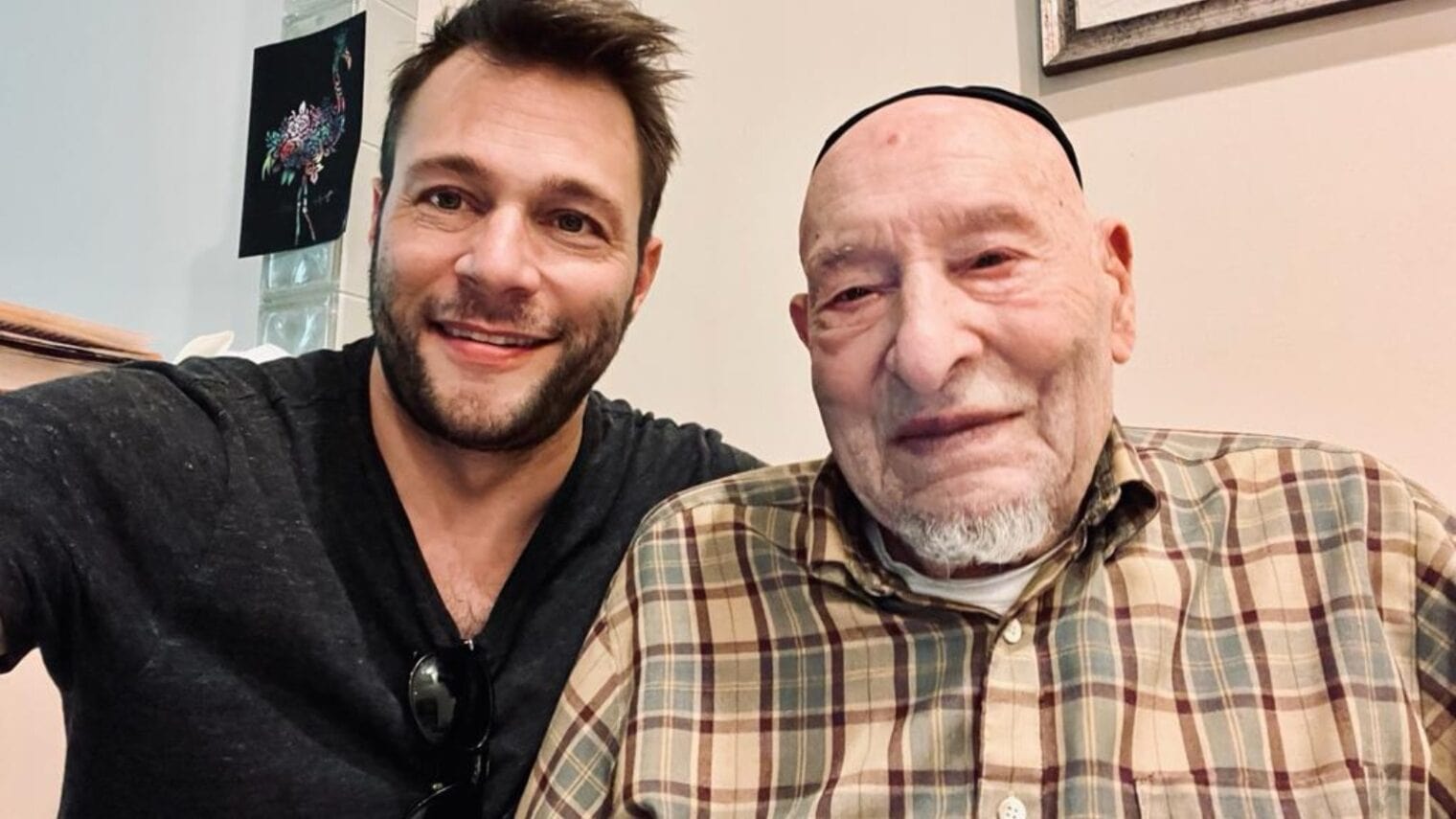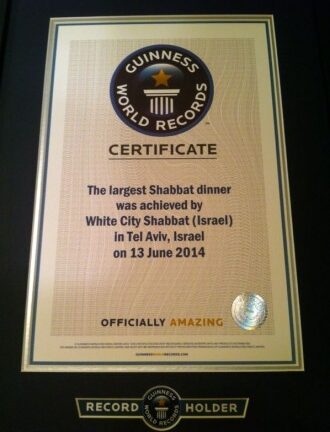On October 9, two days after Hamas terrorists slaughtered, wounded and kidnapped thousands of Israelis near the Gaza border, Jordan Weil answered a call from Tel Aviv-based Adopt-A-Safta to get on a chartered bus and bring food and cheer to hospitals treating victims.
“I can’t just sit in my apartment. I am really bummed that I can’t go and fight, so I am jumping on any volunteer opportunity I can find,” says Weil, 29, who moved to Tel Aviv almost a year ago from Boston.
As the granddaughter of Holocaust survivors, Weil says, Adopt-A-Safta resonates strongly with her and she hopes to make it a regular part of her new life in Israel.
The 11-year-old organization’s core function is to match trained volunteers with isolated elderly people (safta is Hebrew for “grandma”), many of them Holocaust survivors. Volunteers are required to commit to meeting with their adopted grandparent at least once a week for a year.
The most vulnerable citizens
“Our mission is: Don’t forget about the unseen and most vulnerable, who are always the elderly,” says Adopt-A-Safta founder Jay Shultz, a Tel Aviv-based “young internationals” immigrant community leader and philanthropist.
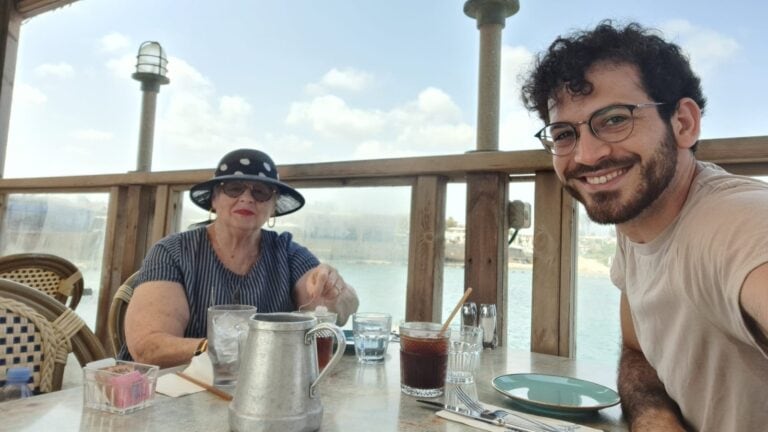
“During a war, the most vulnerable civilians become even more so. Many are homebound, and when there’s a siren they don’t have the ability to run, much less walk, to a shelter at a moment’s notice. If they could walk to the local grocery store in the best of times, they can’t now.”
Shultz added, “A lot of elderly people are scared to answer the door now, even to our volunteers, so we drop food at their door. It’s heartbreaking and very common.”
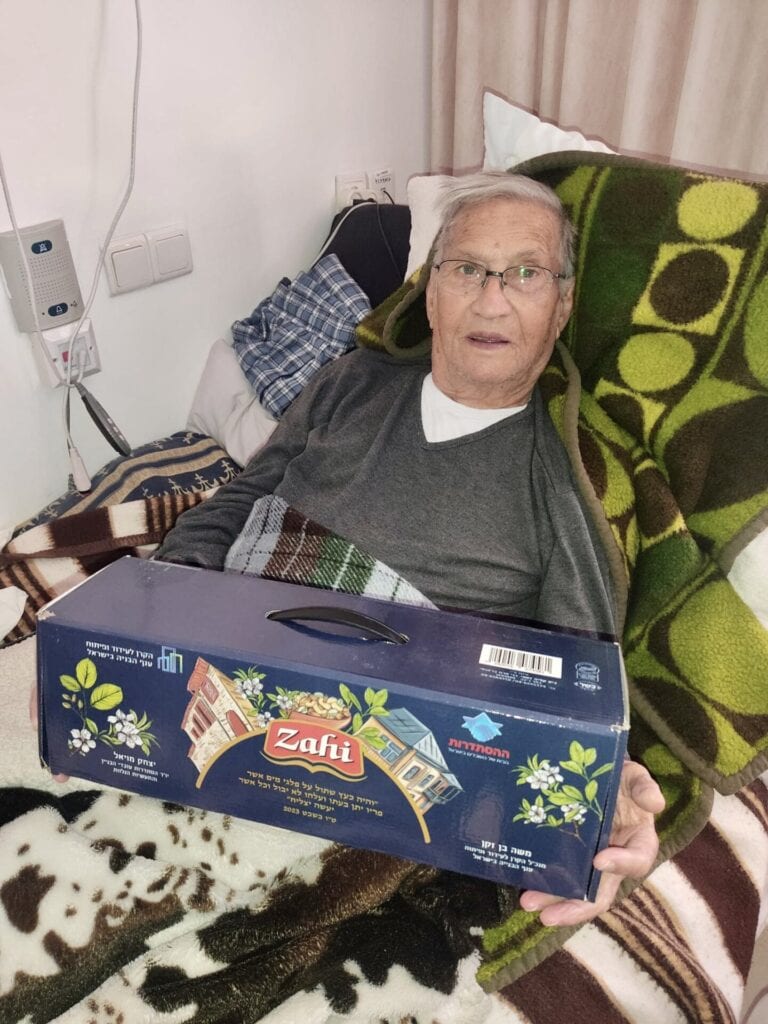
Adopt-A-Safta is now getting “nonstop requests” from municipal social workers, partner organizations, senior residences, and people living abroad with elderly parents in Israel.
“We mainly focus on alleviating loneliness. But as we grow, we’ve also become a physical welfare organization for medical and food security, which put us in a position to respond during corona,” Shultz says.
“Adopt-A-Safta is well placed to be an army of volunteers that can quickly ramp up.”
Shultz maintains a database of tens of thousands of potential volunteers. Many of the active members are in the Tel Aviv area.
His October 8 call to action for volunteers to pick items up in various parts of Tel Aviv and bring them to a staging area garnered about 500 responses. Weil was one of nearly 100 people who delivered the items on two chartered buses the following day.
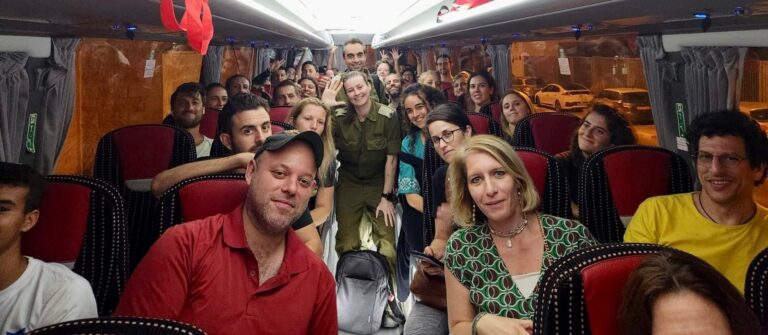
‘Please help my mother’
Shultz shared with ISRAEL21c some of the hundreds of requests for help he’s receiving from people living abroad or even in Israel far from their elderly loved ones.
One woman wrote to him that she just returned to the United States after visiting her 84-year-old mother, a retired French teacher living in Israel.
“She has a very nice helper but we worry that her helper will be overwhelmed now that I’m leaving,” the woman wrote. “Visitors keep her happy so she eats, and as a result will become stronger and God willing will be able to stand and get out of bed.”
“We just set up six volunteers, one for each day of the week during the war to visit this safta,” Shultz says.
“In the chaos of wartime, we are trying to throw as much light into the dark as possible.”
An Israeli WhatsApped Shultz: “I have a question, my grandmother lives in Rishon LeZion and I am wondering if there is a way to get some food for her? She needs gluten-free food. I am far away and cannot get some for her.”
“Yep,” says Shultz. “We got her gluten-free chef delivery.”
Another message to Adopt-A-Safta from a young adult immigrant: “Hi, I really need help finding some support for my elderly dad in Israel during these circumstances. He’s 78, a wounded veteran, still decently mobile but needs support with someone that can be checking in on him from time to time and medical assistance as he has a hurt leg.”
Shultz emphasizes that “Adopt A Safta is typically more organized and proactively intentional. But in the chaos of wartime, we are trying to throw as much light into the dark as possible. As requests come in, we assign volunteers.”
Click here for more information and to donate to Adopt-A-Safta.




